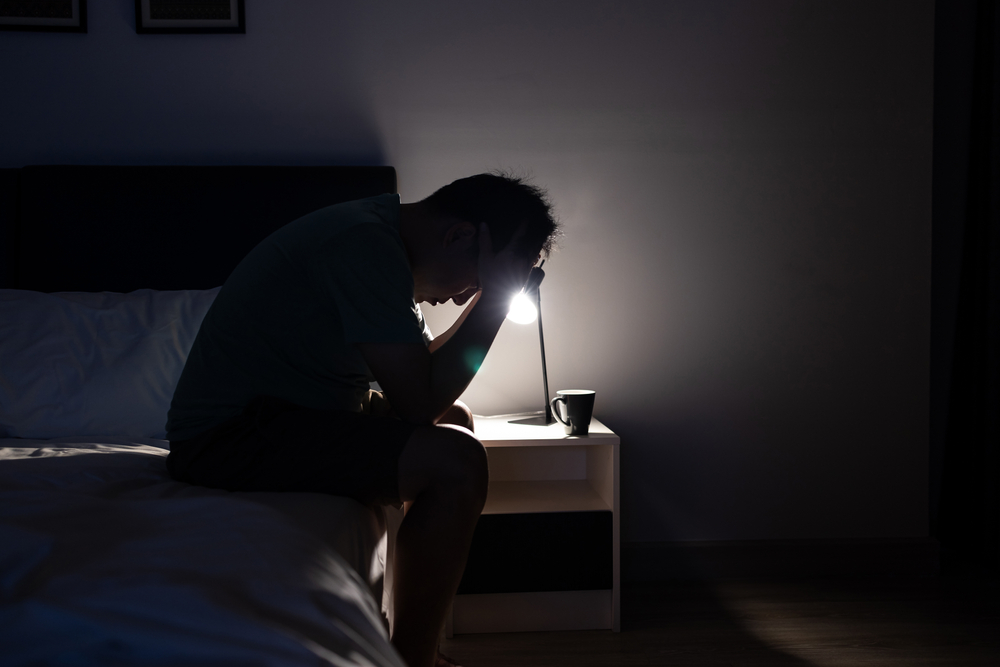


Prices are going up fast. In June, the Federal Reserve’s go-to inflation gauge—the Personal Consumption Expenditures (PCE) index—rose 2.6% compared to last year. That’s up from 2.4% in May. When you take out food and energy costs (which bounce around more), prices still jumped 2.8%. Experts say part of the spike comes from tariffs and ongoing trade pressures.
Now, what does this have to do with substance use?
A lot, actually. When the cost of living climbs and the paycheck doesn't stretch like it used to, economic stress starts creeping in. Rent, food, gas, school fees, and more. It all adds up. Then pile on job insecurity, growing debt, and the psychological distress of it all, and one is left feeling stuck, anxious, and maybe even hopeless.
And when that stress becomes too much to carry, many people turn to alcohol, prescription drugs, or even illegal drugs to cope.
History and research show a clear link between unemployment and alcohol abuse. During recessions or periods of high unemployment, more people turn to alcohol and drugs, and existing users often intensify their use. Financial crises are correlated with increased rates of drug and alcohol abuse across society.
One reason is that unemployment and poverty (typical features of a recession) are known risk factors for substance misuse and addiction. The stress of losing a job or falling into debt can act as a trigger for drug use, and those who were already in recovery may be at high risk of relapse when faced with sudden economic instability.

There is compelling data illustrating this relationship. Research suggests that for each one-point increase in a state’s unemployment rate, there is about a 9% increase in admissions to treatment for opioid addiction, with similar rises in treatment admissions for other substances like alcohol, cocaine, and marijuana. In other words, when layoffs and job losses mount, more people end up needing help for substance use disorders.
Another longitudinal study spanning 17 states found that opioid overdose deaths were heavily concentrated in economically disadvantaged areas. These are places with higher poverty, unemployment, and lower incomes. These findings reinforce that economic hardships (like job search or loss and financial insecurity) can fuel deadly increases in drug abuse and overdose deaths. Public health experts have even described surging deaths from drugs, alcohol, and suicide in hard-hit communities as “deaths of despair,” driven by long-term social and economic decline.
Different substances tend to surge during tough times. For instance, opioids (such as prescription painkillers or heroin) and synthetic opioids like fentanyl often see increased use in economically depressed periods. Fentanyl, a cheap and extremely potent illegal opioid, has become more prevalent in recent years, especially among people who may have lost access to prescription opioids or cannot afford treatment. Tragically, fentanyl has been a major driver of overdose deaths.
US overdose fatalities hit a record high of 106,699 deaths in 2021, a massive jump from about 73,000 in 2020. This is mainly due to the proliferation of fentanyl and other synthetic opioids during the COVID-era economic turmoil. Stresses from the pandemic like job losses, housing instability, and isolation exacerbated opioid abuse, illustrating just how quickly economic stress can translate into higher addiction and death rates.
Alcohol abuse also tends to climb when economic conditions worsen. Many people increase their alcohol consumption to cope with financial worries or unemployment. During the recent pandemic recession, for example, alcohol-related deaths spiked by about 25.5% in the US from 2019 to 2020. The dramatic increase is attributed to young adults drinking more heavily under pandemic stress and economic uncertainty.

Economic recessions in the past have likewise seen upticks in problematic drinking as people use alcohol to manage stress, boredom, or depression. Unfortunately, what might start as “a few extra drinks” to calm nerves can progress to habitual heavy drinking or binge drinking, with long-term health consequences. Higher alcohol use in hard times can lead to more alcohol dependence, liver disease, and other related problems down the road.
Another pattern during recessions is that people may switch to cheaper or more readily available intoxicants. Financial strain forces some people to change their substance of choice based on cost. For example, someone struggling to afford prescription anxiety medications might turn to illicit drugs like methamphetamine, fentanyl, or even alcohol.
Unfortunately, these cheaper substances are often more dangerous. The rise of fentanyl, which is less expensive and far more potent than heroin, exemplifies this trend. Economic and supply factors made fentanyl ubiquitous, and people in desperate situations have gravitated toward it, with deadly outcomes.
Paradoxically, just as economic stress causes substance abuse to rise, it also makes getting help more difficult. During financial downturns, individuals struggling with addiction face greater barriers in accessing treatment or recovery resources.
One major issue is reduced access to healthcare. Someone who loses their job often loses their health insurance, making professional treatment for substance use disorder harder to afford. With money tight, people may prioritize basic needs (rent, food, utilities) over paying for rehab or counseling.
Even transportation costs to attend support meetings or therapy can be a hurdle when gas and living expenses are high. In short, financial stress can trap people in addiction by cutting off the very resources that are designed to help them get better.
This dynamic is evident in the statistics: even in normal times, only about 10% of Americans with a drug or alcohol use disorder receive treatment for it. That treatment gap can widen during recessions, especially for the uninsured and poor. Public programs and charities may become overburdened right when demand increases. This is especially troublesome in rural areas of the United States.
Additionally, government budget cuts in a weak economy can reduce funding for mental health and addiction services, exactly when communities need them most. The result is that many people who develop addiction during an economic crisis do not get timely help, increasing the risk of long-term health consequences or even fatal overdose.
Financial strain also worsens other risk factors that make recovery harder. Homelessness and housing instability often rise during recessions (e.g., due to evictions or inability to pay mortgages), and homelessness is strongly associated with higher overdose risk.
People lacking stable housing or income find it extremely challenging to maintain a treatment regimen or long-term recovery plan. They may also face greater stigma and social marginalization. Social support networks can fray when someone is out of work. For instance, the shame of unemployment might lead individuals to withdraw from friends or family when they need support the most.

All of these factors create a perfect storm where addiction becomes more deadly during times of widespread economic hardship.
Given the increased addiction risks and treatment barriers during economic downturns, it is critical to bolster support and resources for those affected. Strong support systems can make the difference between someone spiraling deeper into substance abuse and finding help and hope.
Community and family support are especially vital during these times. Simply having someone to talk to (support group, sponsor, caring family member) can alleviate feelings of isolation and despair that feed addiction. Programs like 12-step groups (AA, NA) or other peer support meetings are free and widely available, providing a non-judgmental space for people to share and cope.
Public health officials emphasize the need for proactive strategies to address substance use during recessions. Effective responses include community outreach programs, education and awareness campaigns about coping with stress, and easily accessible treatment services. For example, local health departments may increase promotion of mental health hotlines or crisis text lines during an economic crisis, knowing that more people are in emotional pain.
On an individual level, those struggling should be encouraged to seek out any available resources. Many organizations offer free or low-cost addiction treatment options, especially for the unemployed or uninsured. State-funded rehab programs, nonprofit clinics, and support groups can provide help regardless of ability to pay.
Online resources and telehealth therapy have also expanded, making it easier to get counseling or join recovery meetings from home. Human resources departments in the workplace can also play a role by sharing support tools with employees during difficult financial times.
If you or someone you love is struggling with drug or alcohol use due to financial strain or any other reason, don’t hesitate to seek support. Affordable rehab options and professional help are available even during tough times.
More Than Rehab (MTR) is one example of a treatment center committed to providing effective, affordable care to those in need, helping clients achieve lasting recovery regardless of economic circumstances. At More Than Rehab, we understand the unique challenges that financial stress can add to addiction, and we are here to help you navigate them.


